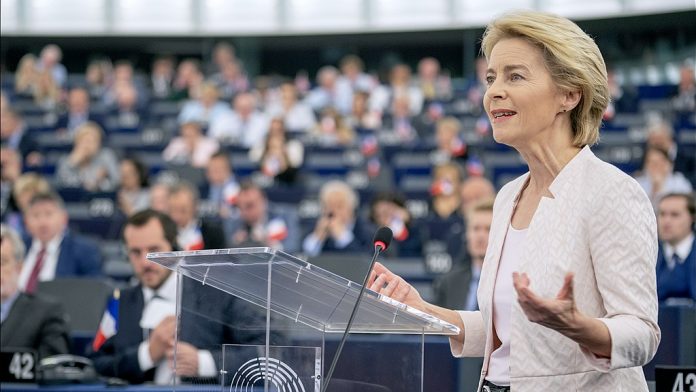At a time of fraying transatlantic ties and deepening great-power competition, Europe must aspire to build its strategic autonomy.
As Europe takes tentative steps to ease coronavirus lockdown restrictions, it is important that discussion remains fostered amongst European leaders about the future of Europe’s security and influence in an increasingly multipolar international system, where geopolitical competition is intensifying. This is imperative considering the growing concern about the United States’ willingness to play a leading role in Europe’s southern neighbourhood.
The case for a more military sovereign Europe has long been eminently a French ambition. President Charles de Gaulle was first to envision European strategic autonomy, in which he believed would yield a Europe better equipped at playing power politics between the U.S. and the Soviet Union.
Almost 50 years since the death of Le Général ‘The General’, current French president Emmanuel Macron has made it clear that he wants the European Union’s foreign and defence policy instruments to be on a par with its economic power. Macron wants to generate support for greater European defence efforts to stop relying almost exclusively on the U.S. for protection and to play a leading role in international affairs.
It is hard to disagree with Macron considering the unilateral foreign policy President Donald Trump has pursued. Europe’s prominent capitals were notably dismayed by Trump’s gross betrayal of the West’s Kurdish partners in the Syrian Democratic Forces, which had given President Erdoğan the green light to launch an incursion in north-eastern Syria and subsequently complicated the ability of the SDF to effectively control Islamic State captives under their control.
Europe has also been left powerless by the order of Trump to kill Qassem Soleimani, leader of the Revolutionary Guards’ Quds Force, which has heightened tensions between Iranian proxies in Iraq and U.S.-led Coalition forces and inevitably complicated the fight against the prevention of the resurgence of ISIS at Europe’s doorstep.
It is also undeniable that transatlantic relations have been greatly strained by Trump’s chastising of European allies during NATO gatherings. In the septuagenarian’s first NATO summit, Trump vociferously attacked his European allies for not spending enough on defence. During the Helsinki and London summits, the American leader accused Germany of being ‘a captive of Russia’ and clashed with Macron on the number of ISIS fighters with European backgrounds. Trump’s critical approach towards European allies has inevitably strained the U.S. standing in an alliance that has been the cornerstone of American defence policy since the Second World War.
With China’s growing influence and military assertiveness in the Asia-Pacific, it is expected that Washington will seek to considerably increase its longstanding commitment to the region, once the Covid-19 pandemic ebbs. Already, U.S. military officials have outlined a $20 billion spending request to Congress to bolster deterrence against China. One can anticipate that greater diplomatic effort will be pursued by the U.S. to strengthen its relations with countries in the region.
From this perspective, it is safe to argue that the U.S. will not be as willing and able to maintain the same commitment to the stability of Europe’s broader geographic neighbourhood. Considering this changing global order, European capitals must raise their defence and security cooperation to maintain their security and strategic interests, especially in the Middle East, North Africa and sub-Saharan Africa from the influence of authoritarian powers.
Yet, Paris still needs to further convince European nations, particularly those with ex-communist legacies regarding the importance of greater European security and defence cooperation. Eastern European states are ideologically Atlanticist in their outlook and therefore continue to view the U.S. as a key deterrent against Russia, which they see as an imminent threat.
Indeed, Eastern European states have seen U.S. military presence considerably strengthened following Russia’s 2014 aggression against Ukraine. The Trump administration has maintained its commitment to this policy by increasing U.S. military presence in Poland. The bilateral agreement signed between Poland and the United States last year saw the deployment of 1,000 additional U.S. troops to the 4,500 already on rotation to the former Warsaw Pact country. Taking thess developments into account, Macron has the difficult task of convincing his Eastern European allies of the importance of a more military sovereign Europe.
France must develop the narrative to its allies in Eastern Europe that greater European defence and security integration is needed to fix the prospect of waning American influence in Europe’s southern neighbourhood, where terrorism and cross-border migration pose a clear threat to the future of the European project.
The views and opinions expressed in this article are those of the author.

The author has recently graduated with a Masters in International Relations from the University of New South Wales, Sydney, Australia. His research interests are focussed on geopolitical and security issues specific to the Middle East and their impact on European powers.


